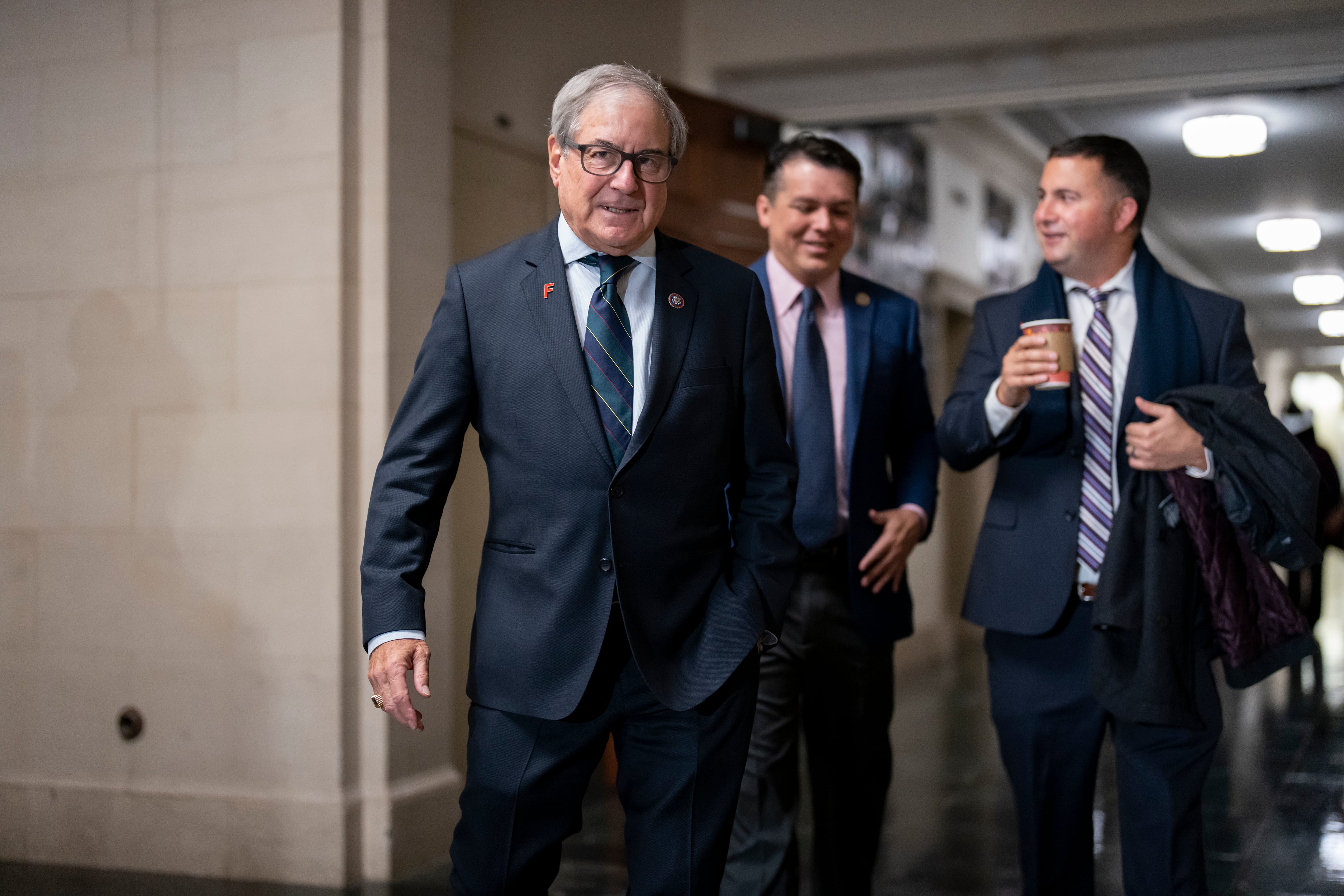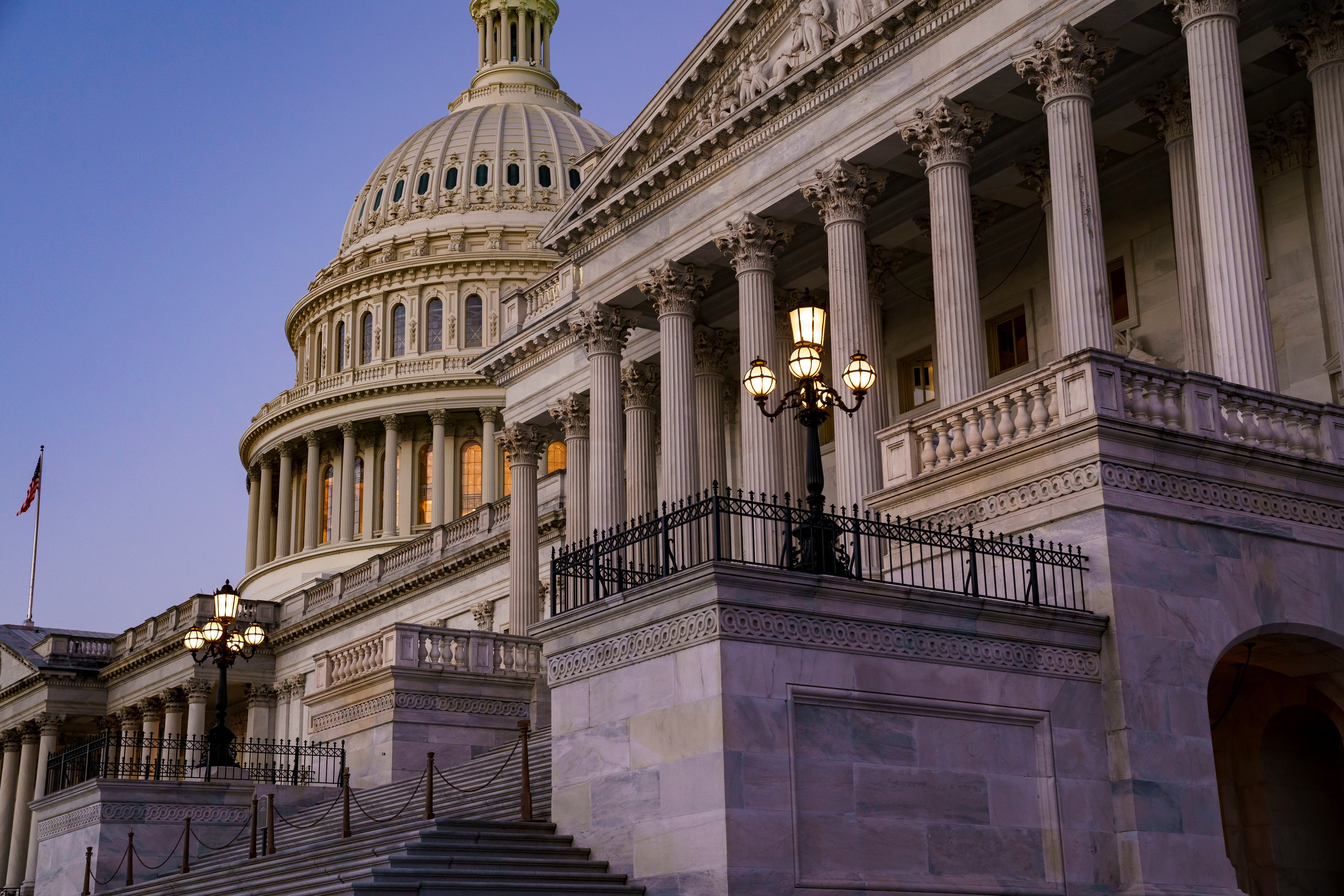Fears of a government shutdown at the end of the month have prompted two Democrats to bring back a bill to prevent it.
On Wednesday, Virginia lawmakers Tim Kaine and Don Beyer reintroduced a bill that would avert government shutdowns by automatically triggering a short-term continuing resolution by Oct. 1 if Congress can’t agree on a long-term spending measure.
“Congressman Beyer thinks there is unfortunately a very high probability that House Republicans will shut down the federal government, possibly as soon as a few weeks from now,” said Aaron Fritschner, a spokesperson, in an email to Federal Times.
The draft legislation, if passed, would also bar the Senate from moving forward with any other legislation, outside of an emergency scenario, until a deal is reached.
Originally, the End Shutdowns Act was introduced in 2019 following the last government shutdown that lasted 35 days and forced the furloughing of 38% of employees at agencies without an appropriation. This year, with House Republicans demanding certain terms that are likely non-starters for Democrats, experts have already said budget negotiations will be heated.
Beyer’s office said the timing of the proposed bill is specifically a response to the brewing threat of a shutdown.
“Government shutdowns have disastrous consequences for federal employees and government contractors and slow down critical government services that millions of Americans rely on like getting replacement Social Security cards and food inspections,” Kaine said in a statement. “But politicians continue to use or threaten to use government shutdowns as a negotiating tactic.
RELATED

So-called auto-CRs have been proposed before and have received bipartisan support in years past. The Committee for a Responsible Federal Budget has analyzed the effects of a measure like that, saying they could improve spending efficiency and lower the stakes for taxpayers and employees while Congress deliberates on a permanent solution.
“Federal agencies often must delay signing contracts until spending is finalized in a December appropriations package, but then they are rushed to spend in less than a full fiscal year,” said the non-partisan public policy group. “Short-term CRs inhibit efficient contracting due to the Anti-Deficiency Act, but an auto-CR lets agencies move forward at the start of the fiscal year.”
Other groups, like the Center on Budget and Policy Priorities, have cautioned that these measures could have the opposite effect by lifting pressure on Congress to reach an agreement, thereby drawing out uncertainty.
“Even though CRs avoid shutdowns, they can cause considerable uncertainty, inefficiency and disruption,” according to the Center.
Whether or not a shutdown seems imminent, agencies already have contingency plans in place that can be carried out in a matter of hours should a lapse in appropriations occur. However, federal employees won’t know whether or not they’re expected to keep working until the funding situation comes to a head on Sept. 30.
RELATED

Virginia is home to more than 170,000 federal employees and tens of thousands of federal contractors.
Civil servants are guaranteed back pay thanks to legislation that passed in 2019. That doesn’t apply to contractors, who may not be able to recoup lost paychecks.
Throughout history, there have been just four shutdowns where operations were affected for more than one business day.
Molly Weisner is a staff reporter for Federal Times where she covers labor, policy and contracting pertaining to the government workforce. She made previous stops at USA Today and McClatchy as a digital producer, and worked at The New York Times as a copy editor. Molly majored in journalism at the University of North Carolina at Chapel Hill.





